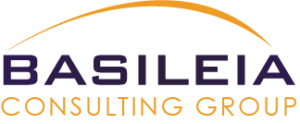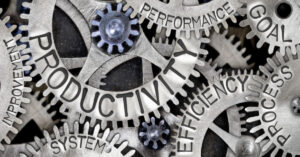A guide to help organizations determine whether it’s time to upgrade. Read 5 Signs that You’re Ready for the Next Level of ERP Software.
Imagine what your future could look like if you had the power to change it.
And what if we told you that you do have that power? In the business sense, that is.
Maybe you’d choose to take a good, hard look at your organization’s objectives, then examine how your current situation is equipped to meet those goals – or not.
As a company leader, you know that your primary responsibility is to ensure your company’s continued success and expansion. You must make use of the appropriate tools to expand your business. Many people in the business world are unaware of how technology, or, to be more precise, how the incorrect application of technology, can prevent you from achieving that goal. The proverb, “use the right tool for the right job,” is a wise business decision.
Quickbooks and other software solutions for small businesses are powerful but uncomplicated business tools. The more customers and sales you have, the more complicated it becomes to run your business. You might have many product and pricing options, multiple distribution channels, multiple locations, a more complicated upstream supply chain, large and complex product offerings, or growing inventory requirements. A small hammer is not always appropriate when the construction job becomes more extensive.
Is it time for your company to move to the next level of enterprise resource planning (ERP) solutions?

Your business will continue to develop, and with it will come the need to modify the operational support systems you use. When a company is in its infant stages of expansion, it may be possible to manage each functional aspect of the business using spreadsheets or compartmentalized software. However, at some point, you will realize that these solutions are preventing your company from reaching its full potential in terms of operational excellence.
Here are five indications that your organization has reached the tipping point where upgrading to a new Enterprise resource planning (ERP) system is an absolute necessity:
1. Gathering data is taking too long
Suppose it takes you more than four hours to gather essential data, such as key performance indicators (KPIs) on incoming orders, pending orders, critical stock, margin per order, or revenues per customer. When it takes so much time to generate information t, your managers will make critical choices based solely on their gut feelings. In that case, you are at a significant disadvantage.
In addition, because there is a lack of real-time data, you cannot get an accurate picture of how well your company is doing until the annual financial reports are published. If you don’t know where you stand going into the quarter’s final day, how can you manage essential aspects of your business, such as marketing and sales? If you cannot generate reports for vital information promptly, it is time to implement a system to give you unrestricted access to your company’s data.
2. You’re dependent on Excel
Excel is an excellent program. However, suppose you’re relying on individual Excel sheets and pivot tables across your departments (such as financial accounting, project management, timesheets, cash management, etc.). In that case, it’s time to find a way to integrate your value chain.
Even though cloud-based tools are abundant, many employees in various company departments are still frequently required to work through local spreadsheets. An effective ERP system can combine value chain components into one streamlined operation.
3. Your ability to cut expenses and raise profits is restricted
Where would you begin looking for solutions if you wanted to find a new way to increase your margins or cut costs? You would need to make decisions based on intuition and guesswork if you did not have full visibility into your value chain, your complete cost structure, timelines, and critical dependencies.
To expand your company, you need complete access to the data that drives and defines it. You need to implement an enterprise resource planning (ERP) system that can store your data and provide you with a real-time view of your operations’ inner workings if you cannot access it quickly.
4. You are consistently missing delivery schedules
Customers are irritated more by inconsistent delivery than anything else, even when the product is of poor quality. If you consistently miss delivery deadlines, this is a clear sign that your existing systems aren’t up to your company’s challenges.
You will not be agile enough to handle setbacks or changes without interrupting delivery if you do not have a solid integration of sales, your supply chain, and production. Due to the lack of communication between departments and the absence of up-to-the-minute information, for instance, if someone didn’t reorder a critical part, you won’t realize it until you miss the shipment because of the absence of current information.
In addition, you won’t even be able to guarantee delivery dates for your customers in the first place if you don’t have a way to keep track of an individual customer order throughout the production process. Such instances are unacceptable in the automotive, aerospace, and technology sectors, which rely on just-in-time delivery. You will have the visibility and integration you require with an ERP system, allowing you to adapt quickly to unforeseen circumstances and meet stringent delivery deadlines.
5. Your team does not accept the system that it is currently using
Employee resistance is a significant indicator that it is time to switch to a more modern ERP system. If your workers are confused about why they need to use the system that you currently have in place or if it does the work that they do more complex, there is a good chance that they will find a way to circumvent it.
If something like this occurs, the issue is that your business and the ERP system you use are operating in separate worlds. In a perfect world, there should be no separation between the systems on which your company operates and the company itself; therefore, you might want to consider an ERP solution that can expand and change along with you.
A cloud-based ERP solution might be the best choice if you want to reduce the financial risk associated with human error.
Where do you go from here?
As a result of their reliance on employees to physically inventory materials, many small and medium-sized businesses can’t guarantee product delivery to customers who are increasingly focused on immediate gratification. These firms commonly use spreadsheets or low-level inventory management software that isn’t designed for complexity and fails to perform when presented with real-world applications.
Cloud-based ERP solutions not only handle inventory management and distribution but can also enhance your internal efficiencies by highlighting mislabeled inventory, determining the optimal warehousing layout, and reducing the number of person-hours required for inaccurate ad hoc inventory practices.
Investing in a cloud-based enterprise resource planning solution could help streamline your operations and save money if you are frustrated by inventory management and distribution problems.
A cloud-based ERP system provides customers with software that is adaptable, user-friendly, sustainable over the long term, and portable across a variety of environments.
About the author
At Basileia Consulting Group, our clients typically range from small to midsized growing companies that appreciate how Business Central Cloud ERP can grow with them. Business Central encourages and facilitates your growth by providing you with the same capabilities used by much larger companies. In this way, Business Central levels the playing field so that you can compete with the big guys!
If you remain on ERP software solutions designed for smaller companies, you effectively prevent growth.
When you think about your company’s future, cloud ERP software should be on your radar as an essential part of your growth. Check out these links to learn more:
- Businesses
- Financial Management
- Supply Chain Management (SCM)
- Inventory Management (IM)
- Warehouse Management (WMS)
- Distribution
- Manufacturing
- Operations Management

Click here to download Basileia’s Business Central Implementation Readiness Guide to see how ready you are to take your business to the next level. We will help you determine the answer to the most frequently asked question: Am I Ready?
If the answer is yes, then…
Let Microsoft Dynamics 365 Business Central ERP Take Your Company to the Next Level
Meanwhile, we suggest that you can…
Contact Basileia Consulting Group (BCG) by calling 949-329-3524 or via our contact form so we can get acquainted and start you on the road to superior cloud ERP!
Related Posts
Your Future and Your ERP Are in the Cloud
Looking for an Outstanding Microsoft Dynamics ERP Partner? Meet Basileia!




